70 years of production at PBS Velka Bites - that is an incredible more than 14,000 pieces of turbine equipment manufactured and delivered, mainly for the aerospace industry. How many stacks of drawings, technological procedures, and, most importantly, great ideas? How many tons of molten iron, thousands of hours at a lathe, at the assembly shop or in test boxes? How many airports, hotels and business dealings? More information you can read in the article.
1950 - 1969
CEOs:
1950 – 1951 Leopold Nezval
1951 – 1953 Stanislav Sevecek
1953 – 1957 Miroslav Kupca
1957 – 1970 Miroslav Sedlacek
Number of employees:
228, years 1951
Establishment of a production plant in Velka Bites
The first “official” mention of the introduction of industrial production in Velka Bites dates back to 1946. The then representatives of the Ministry of Industry promised to help find a suitable industrial sector. In the following years, the production plant of Vitkovice Ironworks began to be built on a "green field". However, it was subsequently handed over to Prvni brnenska strojirna Brno. At the beginning, production focused on the production of pneumatic tools for the Vitkovice Ironworks.
In January 1951, the production of fittings for steam power plants and other energy equipment was started in Velka Bites.
In 1957, the management of the company decided to introduce the production of turbochargers for supercharging diesel engines in Velka Bites. The production of turbochargers and their gradual expansion for various applications has been an important production program of PBS throughout history. In 1997, a joint venture between PBS and MAN B&W Diesel was established under the name PBS Turbo s.r.o., which still manufactures turbochargers in the PBS Velka Bites complex.
In 1967, the construction of an investment casting foundry began. The construction was completed in 1969 and the first melting took place on October 5, 1969. From the first castings of turbine blades, production gradually expanded to entire turbine wheels, as well as spinner discs for glass wool production, to knee replacements for the healthcare industry.
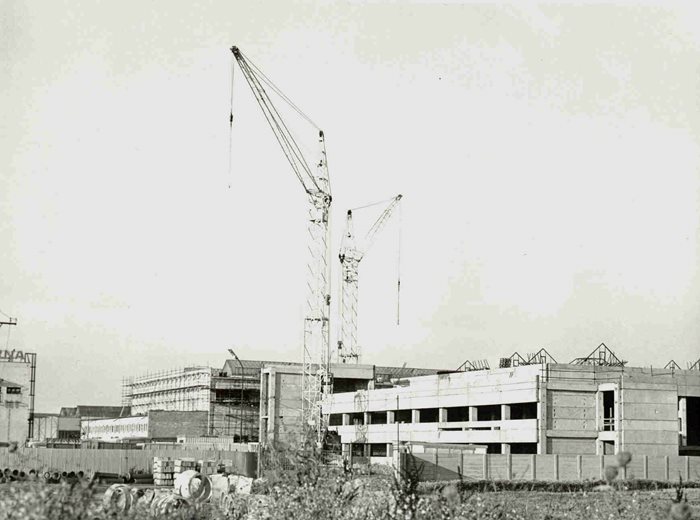 Manufacturing plant in Velka Bites
Manufacturing plant in Velka Bites
1970 - 1979
CEOs:
1970 – 1979 Engelbert Hrnir
Number of employees:
1,168 year 1970
At the beginning of the 1970s, the production of devices for the L-39 Albatros aircraft of the company Aero Vodochody began
ECS devices have also been developed for the L-39 project. A total of 7,500 turbocoolers of various designs were produced until 2004.
In 1973, the first mass-produced Saphir 5
APU were delivered, which started the aircraft's engines with compressed air. During series production, there was a demand to expand the air generator to an auxiliary power unit supplying not only compressed air but also electricity for on-board equipment.
Turbine equipment for the L-39 aircraft directed PBS's focus on the aerospace industry. To this day, these production programs, especially the production and overhaul of auxiliary power units, are among the most important products and services of PBS, both from an economic and technological point of view.
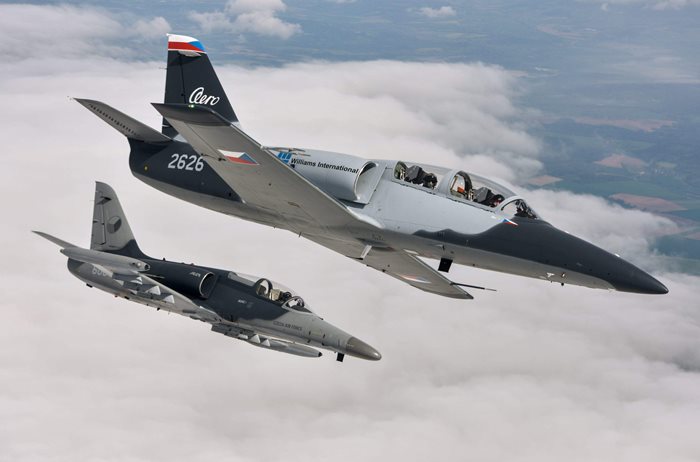
Aero Vodochody L-39
1980 - 1989
CEOs:
1979 – 1985 Josef Ondrak
1985 – 1988 Ing. Ivan Prager
1988 – 1990 Ing. Frantisek Mateja
Number of employees:
1,455 year 1980
Introduction of the production of decanting centrifuges, production of cryogenic equipment, galvanic surface treatment started
In 1981, PBS Velka Bites became involved in the development of cryogenic turbines. At the end of the 1980s, it began supplying helium expansion turbines to LINDE. The three-stage cascade of cryogenic helium compressors was subsequently delivered to the particle accelerator at CERN.
In connection with the introduction and expansion of the production of devices for the L-39 aircraft, it was necessary to ensure the prescribed surface protection. In 1980, the final technologies for anodizing and other types of surface treatment of the plating shop were installed.
In 1985, the production of decanting centrifuges for the separation of solid particles suspended in liquids was introduced.
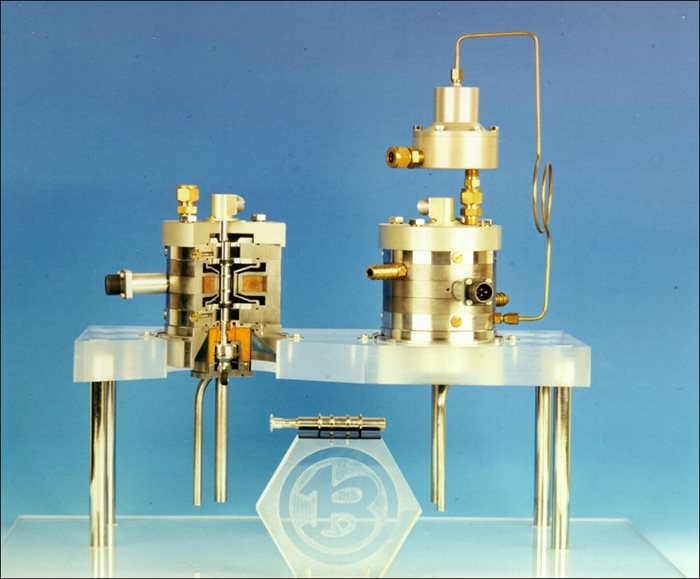
Cryogenic technology
1990 - 1999
CEOs:
1991 – 1997 Ing. Jan Solar, CSc.
1997 – 2003 Ing. Vitezslav Musil, CSc., MBA
Number of employees:
1,679 year 1990
Modern history of PBS
After the socio-political changes in 1989, the company underwent a thorough restructuring. On 1 January 1991, separate companies were created: PBS Brno with its plants in Trebic and Mikulov, an independent company of PBS Velka Bites and a plant in Oslavany. An important chapter in the history of aircraft production in PBS Velka Bites is the supply of devices for the L-159 aircraft, which began in the second half of the 1990s. In addition to the starting and environmental control system, the main gearbox of the aircraft was developed and supplied. In 1993, the production of the type series of steam turbines and expansion turbines of the STG I and STGII type used for biomass combustion technology started. PBS has also long serviced various types of gas and steam turbines.
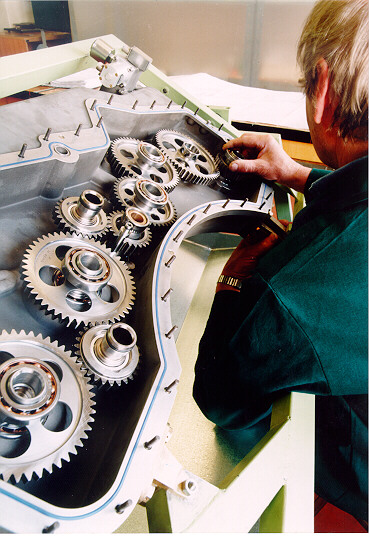
Aircraft gearboxes
2000 - 2009
CEOs:
1997 – 2003 Ing. Vitezslav Musil CSc., MBA
2003 – Ing. Milan Macholan
Number of employees:
902 year 2000
In 2002, tests of the first functional sample of the PBS TJ100 jet engine were started. The first engine was delivered in 2004 to the Spanish training target drone manufacturer, Inta. In 2020, the 1,000th PBS TJ100 jet engine was produced. It is thus one of the most successful final products of PBS in recent history. In 2004, the foundry reached the first production of 100,000 turbocharger wheels in one year for one customer.
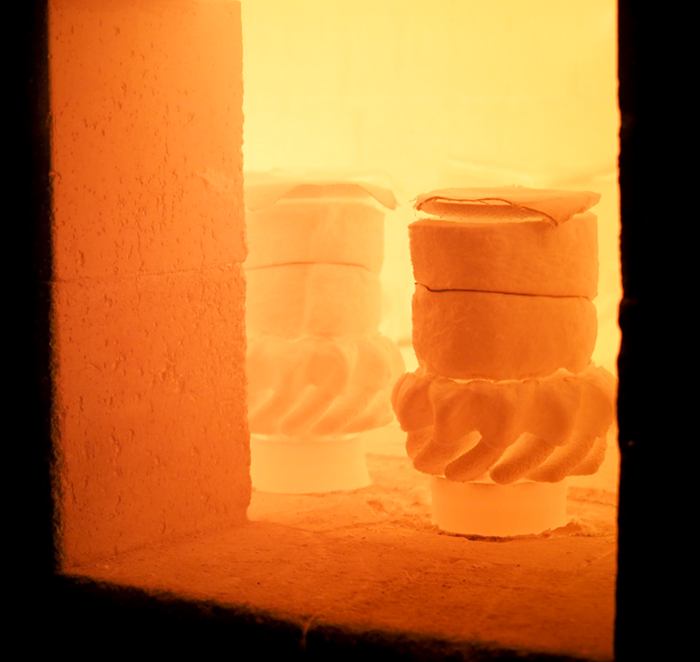
Casting of a turbine wheels in a foundry
In 2001, the first Safir 5K/G MI was delivered to the Russian manufacturer of medium-heavy helicopters at the MIL Design Bureau. This auxiliary power unit was originally designed for the L-610 aircraft, but its production did not materialize in the end. However, due to demanding requirements, a unit capable of starting the main engines at high altitudes up to 6,000 m was developed, which was tested on a Mi-17 helicopter in Tibet in 2001. The 1,000th Safir 5K/G MI was produced in 2019.
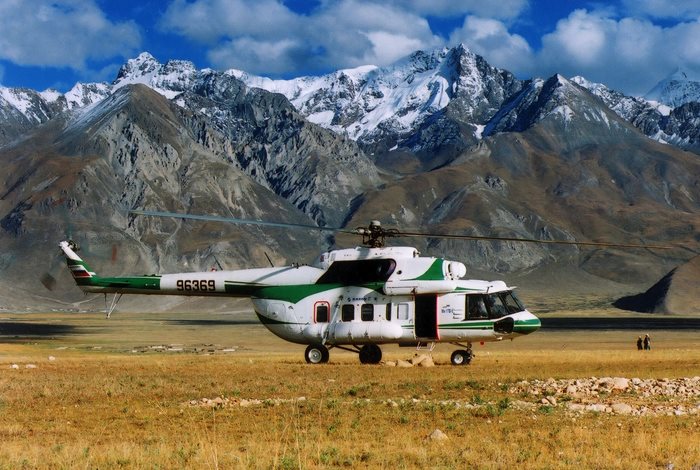 t
t
Tested on a helicopter in Tibet in 2001
2010 - 2020
CEOs:
2003 – present Ing. Milan Macholan
Number of employees:
694 year 2010
In 2011, the ESPOSA project was launched – research and development of technologies for propulsion units in the field of small aviation. Within the project, a turboprop engine TP100 and a turboshaft engine TS100 were developed.
The foundry develops new types of castings every year. For example, it participates in the production of microturbines to produce electric energy. Precision castings of the foundry have been contributing to the success of PBS aviation production since the 1970s.
In 2012 PBS Velka Bites was awarded the title "Company of the Year". In addition to a number of other awards, PBS received the prestigious "National Quality Award" in 2018.
In 2019, the Industry Division was restructured, and the development and production capacities of the Aircraft Technique Division and the Precision Casting Division were strengthened.